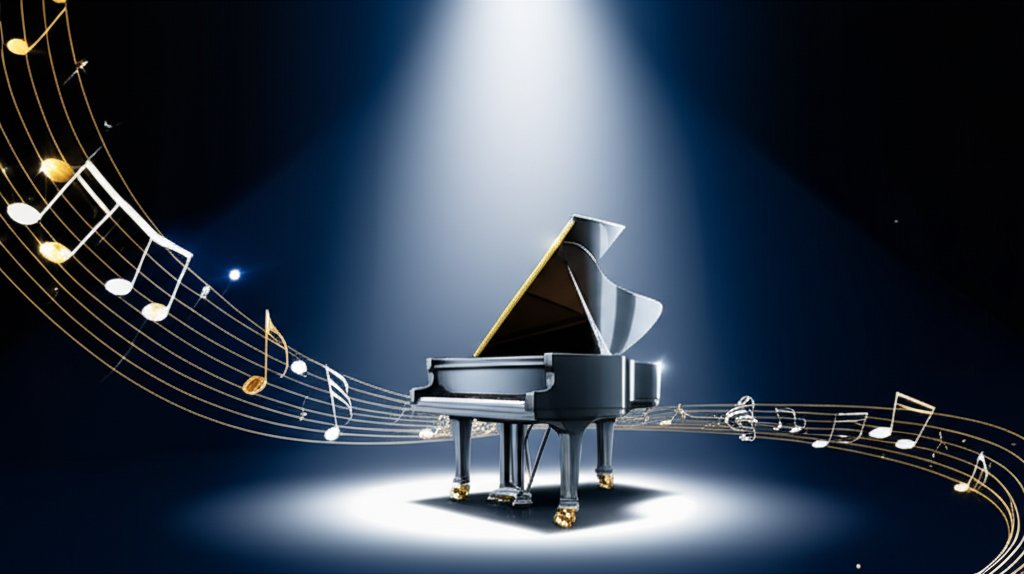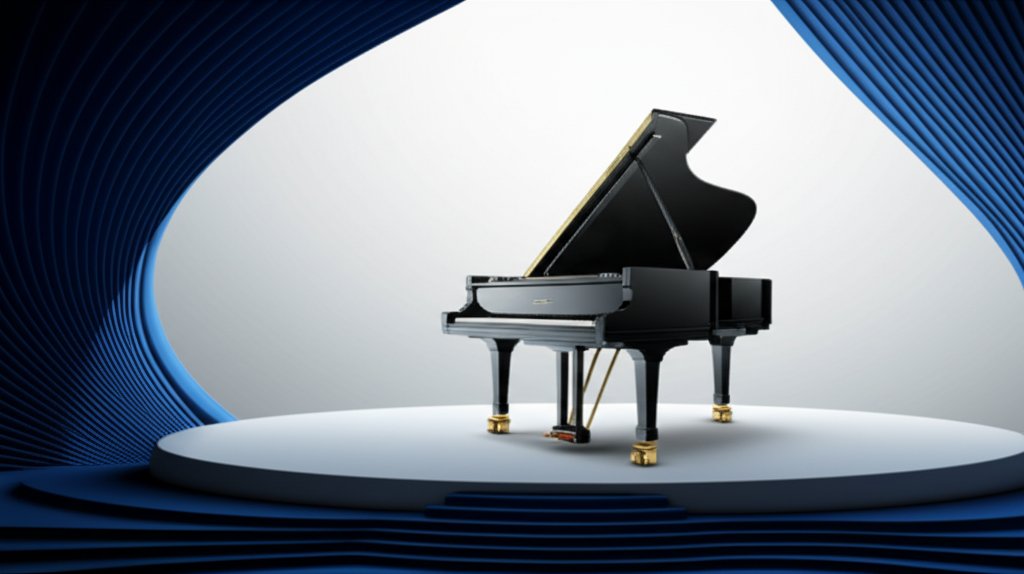The air in the practice room is thick with the ghost of a thousand repeated passages. For months, it’s been just you and the music—the relentless pursuit of a flawless phrase, the ache in your muscles, the sound of a single instrument shaping a monumental work. But what if that sound could be amplified by eighty of the finest musicians, with you at the center? A concerto competition 2025 could be your bridge from the solitary practice room to the grand concert hall stage.
This is more than just a contest; it’s a crucible where dedication is tested and talent is revealed. It’s the chance to collaborate with a professional orchestra, to share your musical voice with a captivated audience, and to take a decisive step in your artistic journey. Whether you’re a violinist from Washington state or a pianist from anywhere in the world, a competition is waiting for you.
At a Glance: Your 2025 Concerto Competition Roadmap
Feeling overwhelmed by the options? Here’s the essential breakdown of what you need to know to get started.
- Diverse Opportunities: Competitions cater to a wide range of ages (from 8 to 25) and geographic locations, including regional, national, and international events.
- Key Deadlines Looming: Most application deadlines fall in late 2025, typically between November and December. Mark your calendar now.
- The Audition Format: The initial round is almost always a video submission. You’ll need a high-quality recording of you performing your concerto movement, usually with piano accompaniment.
- The Ultimate Prize: Finalists often get the career-changing opportunity to perform their full concerto with a professional symphony orchestra.
- Costs to Consider: Expect non-refundable application fees ranging from about $95 to $100.
The Dream on the Horizon: Why Compete in 2025?
Beyond the potential scholarships and cash prizes, concerto competitions offer something far more valuable: experience. The process of preparing a major work to performance-ready perfection builds discipline, technique, and musical maturity. Simply creating an audition recording is a project that hones your focus and critical listening skills.
For the finalists, the reward is transformative. Performing as a soloist with a full orchestra is an unparalleled experience in collaboration and leadership. You learn to breathe with the conductor, to project over the ensemble, and to command the stage. These are the moments that shape a performing artist.
Your Spotlight Awaits: A Guide to Top 2025-2026 Competitions

The landscape of competitions is vast, but a few stand out for their prestige, unique opportunities, and commitment to emerging artists. We’ve analyzed the details of four prominent events to help you find your perfect match. Each offers a distinct path to the stage.
For the Global Virtuoso: Elizabeth Loker International Concerto Competition
Hosted by the esteemed Mid-Atlantic Symphony Orchestra (MSO), the Elizabeth Loker competition is a truly global event. It invites musicians aged 12 to 25 from around the world to compete for one of three finalist spots, offering the incredible prize of performing with the full MSO.
- Who Can Apply: Instrumentalists aged 12 to 25, from any country.
- Key Dates: The registration deadline is December 1, 2025. Finalists are announced on January 16, 2026, with the final round taking place live on March 15, 2026.
- The Audition: A YouTube link of your complete concerto recording is required with your application.
- The Venue: The finals unfold at the beautiful Todd Performing Arts Center in Wye Mills, Maryland.
- What Makes It Special: This competition honors the legacy of Elizabeth Loker, the first female vice president of the Washington Post, and provides a major professional orchestra experience. For more on what makes these events tick, you can find some valuable Explore Concerto Competition Insights.
For the Summer Festival Star: Jan and Beattie Wood Concerto Competition
If you’re planning to attend the Brevard Music Center (BMC), this is an opportunity you can’t miss. The Jan and Beattie Wood competition is an internal event for full-session students, culminating in a performance with the BMC Orchestra at the “Soloists of Tomorrow” concert.
- Who Can Apply: Only full-session instrumental students at the Brevard Music Center are eligible. Previous winners cannot compete again.
- Key Dates: The preliminary video round is from May 1-31, 2025. Semi-finals are held on campus, leading to a public final round in early July. The winners’ concert is July 27, 2025.
- The Audition: The competition is rigorous, with three rounds. Memorization and piano accompaniment are mandatory from the start. Contestants must perform the same movement from the official repertoire list throughout.
- The Prize: Winners not only perform with the orchestra but also receive a full scholarship for the following summer at BMC—a massive boost for any young musician’s training.
- What Makes It Special: The comprehensive, instrument-specific repertoire list covers everything from piano and strings to harp and timpani, ensuring a level playing field.
For the Rising Prodigy: The International Young Artist Concerto Competition (IYACC)
Based in the heart of Chicago, the IYACC is laser-focused on discovering and nurturing the next generation of soloists. With two distinct age divisions, it provides a tailored experience for both younger and older artists, uniquely offering an orchestral performance in both the semi-final and final rounds.
- Who Can Apply: Musicians in two divisions: 18 & Under and 12 & Under.
- Key Dates: The early bird deadline is October 5, with the final application deadline on November 16, 2025. The competition itself takes place from January 23-25, 2026.
- The Audition: After an initial application, semi-finalists are announced on December 7 and proceed to the live rounds in Chicago.
- The Venue: Performances are held in the historic Ganz Hall at Roosevelt University, with the SEEN Worldwide Orchestra.
- What Makes It Special: The chance to perform with an orchestra in both the semi-finals and finals is a rare and invaluable learning experience. The 2025 winners, including pianist Wilson Liu and cellist Mira Kardan, set a high bar for future competitors.
For Pacific Northwest Talent: Bellevue Symphony Young Artists’ Concerto Competition
This competition is a fantastic regional opportunity for young musicians in the Pacific Northwest to make their mark. The Bellevue Symphony celebrates local talent, offering four Grand Prix winners the chance to solo with the orchestra.
- Who Can Apply: Residents of Washington, Idaho, or Oregon, aged 8 to 18.
- Key Dates: The application window is September 1, 2025, to December 1, 2025. Winners are announced quickly, on December 15, 2025, with the winners’ concert on March 1, 2026.
- The Audition: Applicants submit a video (up to 15 minutes) of one movement from a standard concerto, recorded with accompaniment between August 1 and December 1, 2025.
- The Venue: The winners’ concert is held at the Meydenbauer Theater in Bellevue, Washington.
- What Makes It Special: With junior (13 and under) and senior (14-18) categories, the competition ensures that younger players are judged against their peers. The tight turnaround from application to announcement keeps the momentum going.
How to Choose the Right Stage for Your Talent
With these options, how do you decide where to focus your energy? It’s not just about picking the most prestigious-sounding name. The right fit can make all the difference.
Ask yourself these questions:
- Do I meet the eligibility criteria? This is the first and most important filter. Check the age range, geographic restrictions, and any institutional affiliations (like at Brevard).
- Does the repertoire fit my strengths? Some competitions, like the Jan and Beattie Wood, have a specific repertoire list. Others are more open. Choose a competition that allows you to play a piece you love and have mastered. Understanding the nuances of a piece is one of the most important Concerto Competition Insights any musician can have.
- What is the application format? Most require a video, but the specifics vary. Do you need the whole concerto or just one movement? Is accompaniment required? Can you produce a high-quality recording that does your playing justice?
- Can I commit to the timeline? Look at the final performance dates. Do they conflict with school exams or other major commitments? A competition is a marathon, not a sprint, so be sure you can see it through to the end.
| Competition | Age Range | Geographic Scope | Key Feature |
| :— | :— | :— | :— |
| Elizabeth Loker | 12-25 | International | Perform with the Mid-Atlantic Symphony |
| Jan & Beattie Wood | Varies | Brevard Music Center Students | Win a full scholarship for next summer |
| IYACC | 12 & Under, 18 & Under | International | Orchestra in both semi-finals and finals |
| Bellevue Symphony | 8-18 | WA, ID, OR residents | Regional focus with junior/senior prizes |
From Practice Room to Podium: Crafting a Winning Application

Your application is the first impression you’ll make on the jury. It needs to be polished, professional, and powerful.
Selecting Your Concerto Movement
Choose a piece that showcases not just your technical prowess but also your musicality. The first movement of a standard concerto is often a safe bet, as it typically contains a variety of tempos and moods, including a cadenza. But don’t be afraid to choose a different movement if it better highlights your unique strengths. For pianists, the decision can be especially complex; it’s worth reading up on what goes on Inside a piano competition to make an informed choice.
Recording a Standout Audition Video
This is your audition. Treat it with the gravity of a live performance.
- Find a Good Space: Record in a room with good acoustics—a church, recital hall, or a large living room can work well. Avoid small, “dead” rooms.
- Use Quality Equipment: You don’t need a Hollywood studio, but your phone’s built-in microphone might not cut it. An external microphone can dramatically improve audio quality.
- Get the Framing Right: Position the camera on a tripod so it captures your full body, hands, and instrument. A static, single-camera shot is standard.
- Dress the Part: Wear what you would for a real concert. It puts you in the right mindset and shows the jury you’re serious.
- Perform, Don’t Just Play: Do several full takes. Choose the one where you feel most connected to the music, not necessarily the one with the fewest technical errors. Authenticity and passion resonate, even through a screen.
Nailing the Paperwork: Deadlines and Fees
Don’t let a simple administrative error derail your chances.
- Read the instructions carefully. Then read them again.
- Pay the non-refundable fee ($95-$100) on time.
- Double-check that your YouTube or Dropbox link works and is set to the correct privacy settings.
- Submit everything well before the final hour of the deadline to avoid technical glitches.
Your Concerto Competition Questions, Answered
Here are quick answers to some of the most common questions aspiring soloists have.
Do I absolutely need a piano accompanist for my video?
For most competitions, yes. The Bellevue Symphony and Jan and Beattie Wood competitions explicitly require it. An accompanist provides the harmonic context for your solo part, giving the jury a complete musical picture.
What if I can’t afford the application fee?
This is a real barrier for many. Some competitions may offer fee waivers, but it’s rare. It’s best to inquire directly with the competition administrator well in advance of the deadline. Don’t be afraid to ask.
Is memorization required for the video round?
It varies. The Jan and Beattie Wood competition requires it for all rounds. For others, it may not be explicitly required for the video but is strongly recommended. Performing from memory demonstrates a deeper command of the music and is almost always expected in live final rounds.
Can I submit a recording of a live performance?
Usually, yes, as long as it meets the date requirements (e.g., recorded after August 1, 2025, for the Bellevue competition) and features good audio/video quality. Make sure the sound is balanced and your playing is clearly audible over the orchestra or piano.
Your Concerto Journey Starts Now
The path to the concert stage is paved with dedication, resilience, and a bit of bravery. A concerto competition is a formal step on that path—a challenge that pushes you to become a better musician.
Start by choosing one or two competitions that feel right for you. Review the repertoire, mark the deadlines on your calendar, and talk to your teacher about a preparation plan. The work begins today, in the quiet of the practice room. But with every polished scale and perfected phrase, you are one step closer to the roar of applause and the bright lights of the stage. Good luck.
- Discover Affordable Singing Lessons Near Me to Unlock Your Potential - February 24, 2026
- Affordable Vocal Lessons Bring Professional Singing Guidance Within Reach - February 23, 2026
- Local Vocal Lessons Offer Expert Guidance for Every Singer - February 22, 2026










